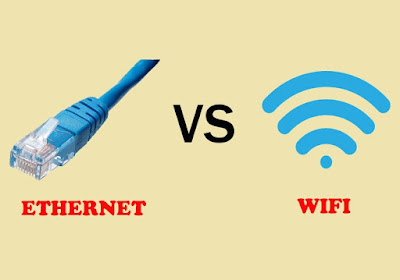Which Way for Internet Services? Fiber or Wireless?
Exploring Internet Services: Fiber vs. Wireless
In our modern digital age, internet connectivity is not just a luxury—it’s a necessity. As we navigate the vast landscape of internet service options, the debate between fiber optic and wireless technologies continues to gain prominence. Which path should you choose for your internet needs? Let’s delve into the nuances of fiber and wireless services to help you make an informed decision.
The Power of Fiber Optic
Fiber optic internet represents the pinnacle of wired connectivity. It operates by transmitting data through thin glass or plastic fibers using light pulses, enabling incredibly fast and reliable internet speeds. The key advantages of fiber optics include:
- Speed: Fiber optic connections offer unmatched speeds, capable of reaching up to 1 gigabit per second (Gbps) for both uploads and downloads. This rapid speed ensures seamless streaming, gaming, and large file downloads without buffering or delays.
- Reliability: Fiber optics are resistant to interference from electromagnetic signals, ensuring a stable connection even during peak usage times. This reliability makes fiber ideal for households or businesses that require consistent high-speed internet.
- Low Latency: Fiber optics boast low latency, which means data travels faster over these networks. This is crucial for activities like online gaming, video conferencing, and real-time data transfers.
The Flexibility of Wireless Technologies
Wireless internet services, on the other hand, have made significant strides with the advent of technologies like 5G. Wireless networks use radio waves to transmit data between devices and the internet. Here are the key benefits of wireless internet:
- Mobility: Wireless connections provide unparalleled mobility, allowing users to access the internet from anywhere within the coverage area. This makes wireless ideal for smartphones, tablets, and other mobile devices.
- Rapid Deployment: Wireless networks can be quickly deployed without the need for extensive cable installations. This makes them a practical choice for areas where laying fiber optic cables is challenging or cost-prohibitive.
- Scalability: Wireless networks can easily scale to accommodate more users and devices by adding additional access points or boosting signal strength. This scalability is beneficial in densely populated areas or temporary events.
Choosing the Right Solution for Internet services
The decision between fiber and wireless internet ultimately depends on your specific needs and circumstances:
- Home Use: If you prioritize speed, reliability, and low latency for activities like streaming, gaming, or remote work, fiber optic internet is the way to go.
- Business Applications: Businesses that rely on cloud services, video conferencing, or large-scale data transfers will benefit from the stability and high bandwidth of fiber optics.
- Remote Areas: In rural or remote regions where physical infrastructure is limited, wireless technologies like fixed wireless or satellite internet can provide much-needed connectivity.
Looking Toward the Future
The future of internet services likely lies in a hybrid approach that leverages both fiber and wireless technologies. This hybrid model will enable seamless connectivity across diverse environments, ensuring that everyone has access to fast and reliable internet.
In conclusion, whether you choose fiber optic or wireless internet services, rest assured that advancements in technology are continually pushing the boundaries of connectivity. Evaluate your needs, consider your options, and embrace the digital revolution with the internet service that best suits your lifestyle.
Which path will you take for your internet journey? Join the conversation and share your thoughts on the future of internet connectivity.
This blog post aims to provide a comprehensive overview of the choice between fiber optic and wireless internet services, emphasizing their respective strengths and applications. It encourages readers to consider their unique needs and circumstances when selecting the best internet solution for their homes or businesses.
Follow us on all our social media platforms to stay updated on cyber security. Facebook website.


